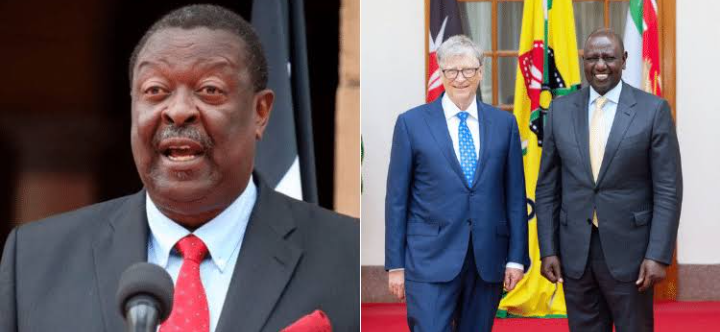In a recent decision that has sparked debate, Kenya has granted the Bill and Melinda Gates Foundation diplomatic immunity through Legal Notice No. 157, signed by Prime Cabinet Secretary Musalia Mudavadi on November 19, 2024.
This immunity gives the foundation and its employees protection similar to that enjoyed by diplomats, meaning they are shielded from certain legal and administrative responsibilities while working in Kenya.
This special status will likely impact how the Gates Foundation operates in Kenya.
The foundation, known for its major projects in healthcare, agriculture, and development, often works closely with the government.
Now, with diplomatic immunity, it may avoid some lawsuits, certain taxes, and other legal matters that typically apply to organizations in Kenya.
Supporters of the decision argue that this immunity will make the Gates Foundation’s work smoother and more efficient.
By avoiding some local legal and administrative hurdles, the foundation may be able to focus more on its mission to improve healthcare, boost agricultural productivity, and support other development goals in Kenya.
They believe this change will allow the foundation to use its resources more effectively, potentially achieving positive results more quickly.
However, critics are concerned about what this immunity might mean for accountability and transparency.
They worry that the Gates Foundation, while protected from certain legal obligations, might not be held fully responsible if any problems arise in its projects or if it conflicts with Kenyan laws.
In a country where public demand for transparency in foreign-funded projects is growing, this special status may lead some to question how well the government is monitoring the foundation’s work.
This decision has also led to questions about the government’s priorities.
By giving quasi-diplomatic status to a private foreign foundation, some argue that Kenya may be showing favoritism toward foreign interests over its own citizens’ needs.
Critics feel that such a decision could weaken Kenya’s control over foreign organizations operating within its borders, especially when they are involved in important areas like healthcare and agriculture.
Around the world, similar immunities given to private organizations have sparked mixed reactions.
Supporters claim that immunity helps organizations avoid political issues that can slow their progress.
However, opponents worry that it allows these organizations to avoid scrutiny and local regulations.
Mudavadi’s decision highlights the influence that large international donors and foundations can have on Kenyan policy.
The government will likely face more questions on how it balances the interests of foreign partners with protecting national interests.
In the coming months, as the Gates Foundation continues its work under this new immunity, Kenyans will be watching closely to see how the government manages its relationship with powerful international organizations and ensures that the country’s own priorities and values are respected.
This decision has the potential to impact Kenya’s foreign policy, its control over domestic projects, and how the public views its leaders’ commitment to national sovereignty.













Leave feedback about this